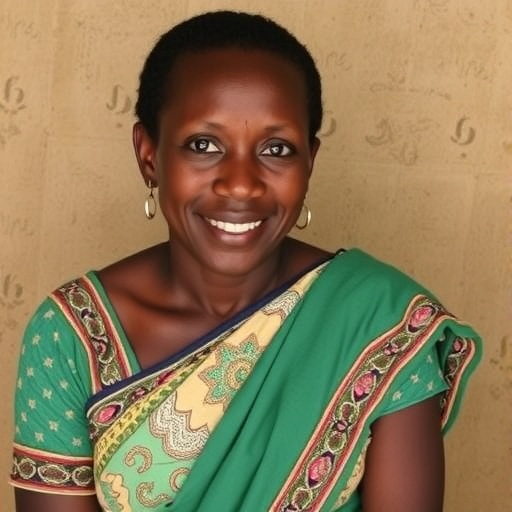In the Northern Region of Ghana, the uptake of clinical breast examination (CBE) remains critically low despite the World Health Organization’s endorsement of this screening method, especially in resource-limited settings where mammography is often unavailable. A recent comprehensive study, published in BMC Cancer, sheds light on the multilevel factors influencing CBE participation among women in this region, revealing a complex interplay of educational, psychological, social, and environmental determinants that dictate health-seeking behaviors.
The research, grounded in a cross-sectional survey design, utilized a multi-stage cluster sampling technique to recruit a significant sample size of 1,543 women aged 25 years and older from 30 distinct communities in the Tamale metropolis. This robust sampling approach permitted a nuanced exploration of various factors at the individual and community levels that either facilitate or hinder CBE utilization.
One of the standout findings of the study was the strong association between education level and likelihood of undergoing CBE. Women who had attained tertiary education were found to be more than twice as likely to participate in breast screening compared to those without any formal education. This result underscores the pivotal role that education plays in empowering women with the knowledge and confidence necessary to engage in preventative health practices.
Beyond formal education, the study also highlighted the impact of breast cancer knowledge itself on screening behavior. Incremental increases in awareness and understanding of breast cancer were correlated with a corresponding increase in CBE uptake. This points to the crucial role that targeted educational interventions could play in boosting screening rates among populations with limited baseline knowledge.
Perceived susceptibility to developing breast cancer emerged as another significant predictor. Women who acknowledged a higher personal risk were more inclined to seek out CBE. This perception of vulnerability appears to motivate proactive health behaviors, suggesting that enhancing risk communication may effectively encourage screening participation.
Conversely, psychological barriers significantly dampened screening rates. Elevated perceived obstacles—such as concerns about cost, accessibility, or cultural constraints—halted many women from accessing CBE services. Additionally, a strong fear of breast cancer itself paradoxically reduced the likelihood of getting screened. These psychological factors highlight the need for sensitive counseling and community engagement to dismantle fears and misconceptions.
Social influences also played a critical role in shaping screening behavior. Women who received recommendations to undergo CBE from friends or healthcare providers were considerably more likely to engage in screening. This finding illustrates the power of social networks and trusted medical advice in overcoming inertia and stigma related to breast health.
The environmental context was equally influential. Women residing in communities with accessible health facilities offering CBE services displayed significantly higher screening rates than those in areas lacking such infrastructure. Urban residency likewise correlated positively with CBE uptake, reflecting disparities in healthcare accessibility between urban and rural settings.
These multilevel factors collectively suggest that a one-dimensional approach to increasing breast cancer screening is likely insufficient. Instead, a comprehensive, multifactorial strategy that addresses educational gaps, psychological barriers, social influence, and healthcare access is imperative to improve CBE uptake among women in Ghana’s Northern Region.
The researchers advocate for community-based education programs aimed at raising breast cancer awareness and dispelling fears. Such initiatives would need to employ culturally sensitive messaging tailored to diverse literacy levels, leveraging local influencers to maximize reach and impact.
Simultaneously, improving the availability of health facilities equipped with CBE services is critical, particularly in rural and underserved areas. Policymakers and healthcare planners must prioritize infrastructure development alongside educational campaigns to bridge existing service delivery gaps.
Engagement of healthcare providers is also essential, as their recommendations substantially influence women’s decisions to seek screening. Training providers to communicate effectively about breast health and the benefits of early detection could enhance patient-provider trust and screening adherence.
Moreover, leveraging social networks to disseminate positive screening messages among women’s peer groups could harness community dynamics to create supportive environments around breast health.
This study serves as a crucial call to action, emphasizing that improving clinical breast examination uptake in resource-limited settings requires integrating individual-level education and psychological support with broader social and systemic changes.
In conclusion, the efforts to curb breast cancer mortality in Ghana hinge on adopting a multifaceted approach that intertwines awareness raising, fear reduction, facilitation of access, and community engagement. Only through such a synchronized strategy can significant strides be made in enhancing early detection and improving health outcomes for women in this vulnerable population.
Subject of Research:
Multilevel factors influencing the uptake of clinical breast examination among women in the Northern Region of Ghana.
Article Title:
Multilevel factors associated with clinical breast examination uptake among women in the Northern Region of Ghana: a cross-sectional survey
Article References:
Afaya, A., Lee, H., Kim, S.Y. et al. Multilevel factors associated with clinical breast examination uptake among women in the Northern Region of Ghana: a cross-sectional survey. BMC Cancer 25, 1476 (2025). https://doi.org/10.1186/s12885-025-14550-w
Image Credits: Scienmag.com
DOI:
https://doi.org/10.1186/s12885-025-14550-w




